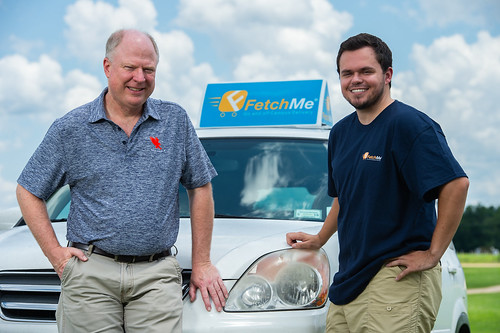Auburn management professor gives advice to help small businesses survive the coronavirus shutdown
Article body
Dave Ketchen, the Harbert Eminent Scholar and professor of management in Auburn University’s Harbert College of Business, offers advice on how small businesses can survive the effects of the coronavirus shutdown.
In what ways will the coronavirus impact small businesses and what is the breaking point to where these businesses simply can't take any more?
Loss of revenue is the biggest worry for most small business owners. Few owners have large stashes of cash in the bank and their ability to borrow is quite limited. Instead, they depend on weekly sales in order to pay their bills. Hopefully suppliers will work with their small business partners by relaxing payment deadlines. We’ve seen examples of that happening and it is in suppliers’ best interest to help their small business partners stay afloat. Suppliers make nothing from a bankrupted customer.
On Friday, renowned Shark Tank investor Robert Herjavec told CBNC that long-term planning for a small business during the current crisis means one week. It's a daily battle for survival. He also stressed that owners need to be prepared for the crisis to last months rather than weeks. I think he is spot on with all these points.
The breaking point for each small business depends on how finances can be juggled. If folks rally around a small business so that its sales are only mildly hurt and the landlord is flexible on when rent is received, the business can weather the proverbial storm. But if sales are down 80 or 90 percent and suppliers insist on being paid on time, closing the doors might be the only option. Federal and state level help for small business seems to be on the horizon and keeping abreast of those developments is going to be very important—assuming these programs materialize, they can shift the short-term equation in small business owners’ favor.
What strategies should a small business owner implement in order to survive?
I think we are going to see small businesses that act to benefit their communities are going to get payback many times over. A great example is John Emerald Distillery in Opelika which is just a few miles from campus. They have shut down alcohol production in favor of making hand sanitizer. The sanitizer is being given away to citizens and to other businesses. People will remember this in the future and spend more money with John Emerald than they would have.
Most restaurant owners seem to be a little shell shocked at the moment but once they get their bearings I’d expect to see some promotions where if customers make certain purchases—maybe a $50 gift card for future use—then a restaurant will donate a meal to nurses and other overworked health care workers. Better yet, take a catered meal to the local hospital and ask the workers to tell their friends about it on social media if they enjoy the food.
We see that crowds of 25 or more are not permitted. That said, what types of small businesses have a better fighting chance to survive and possibly even prosper from this period?
Places that depend on large groups of customers being physically present such as bars definitely will suffer. Delivery services are going to do well as long as deliveries continue to be allowed. More generally, the federal government appears poised to send Americans checks in order to try to boost the economy. Small business owners should be figuring out how to attract some of that money when people receive it in the mail.
What advice would you give an aspiring entrepreneur who needs capital to make it in these dire times? Perhaps hold off on entrepreneurial plans for now and wait until this is over?
It depends on the business. Warren Buffett famously told investors to be greedy when others are fearful. This can apply to some small businesses. Launching a lawn service, for example, probably would be fine especially if customers can pay online. The folks who sell high-end lawnmowers are likely hurting for business and willing to discount their prices. On other hand, anyone looking to open a restaurant or a roller rink or a hotel probably needs to sit on the sidelines for a while.
What lessons can be learned from this that businesses can apply moving forward?
A lot of businesses are finding that their contingency plans for coping with disasters need improvement. Taking some time after this crisis is resolved to revisit disaster planning would be time well spent.
About Dave Ketchen:
Dave Ketchen serves as the Harbert Eminent Scholar and professor of management in Auburn University’s Harbert College of Business. Driven by the desire to understand why some companies succeed and others fail, his research on strategic management and entrepreneurship has attracted more than 30,000 citations according to Google Scholar. He has published more than 160 articles in scholarly journals and his research has been published in The Wall Street Journal and Forbes Magazine. He is a recipient of Auburn’s Creative Research and Scholarship Award.
Auburn University is a nationally ranked land grant institution recognized for its commitment to world-class scholarship, interdisciplinary research with an elite, top-tier Carnegie R1 classification, life-changing outreach with Carnegie’s Community Engagement designation and an undergraduate education experience second to none. Auburn is home to more than 30,000 students, and its faculty and research partners collaborate to develop and deliver meaningful scholarship, science and technology-based advancements that meet pressing regional, national and global needs. Auburn’s commitment to active student engagement, professional success and public/private partnership drives a growing reputation for outreach and extension that delivers broad economic, health and societal impact.







